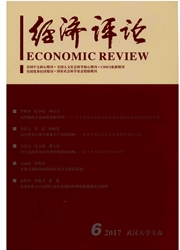

 中文摘要:
中文摘要:
在工业化和城镇化过程中,中国农村劳动力流动面临户籍等制度约束,表现出诸如非“举家”迁移、“抱团”等独特现象。“家庭决策”和“社会互动”是解释这些独特现象的两个重要视角。本文基于中国家庭追踪调查(CFPS)2010年数据,实证探讨家庭决策机制和社会互动效应对中国农村家庭劳动力流动的影响,并进一步考察这两类因素对家庭劳动力省内流动和跨省流动的作用。结果发现,绝对收入和相对收入较低、受教育水平较高的家庭,其劳动力外出打工率较高;村庄社会网络对家庭劳动力流动具有显著的促进效应,家庭社会网络对劳动力省内流动具有负向影响,而对劳动力跨省流动具有正向影响;中国农村劳动力流动存在显著的“同群效应”。
 英文摘要:
英文摘要:
In the process of industrialization and urbanization, rural labor migration in China faces institutional constrains such as hukou and other specific problems. For example, only part of the family members migrates, but not the whole family, and migrants usually relocate and work with their relatives or villagers. To study these problems, family decision and social interaction are two important perspectives. Using the data from China Family Panel Studies 2010, this paper tests the effects of family decision and social interaction on rural labor migration, including both the intra - province migration and inter- province migration. We draw several conclusions. First, families with lower absolute income, lower relative income and higher education, are more inclined to migrate. Second, social network with village members has a significant positive effect on migration, and social network with relatives has a negative effect on intra- province migration, while has a positive effect on inter - province migration. Third, China' s rural labor migration shows significant peer effects.
 同期刊论文项目
同期刊论文项目
 同项目期刊论文
同项目期刊论文
 期刊信息
期刊信息
